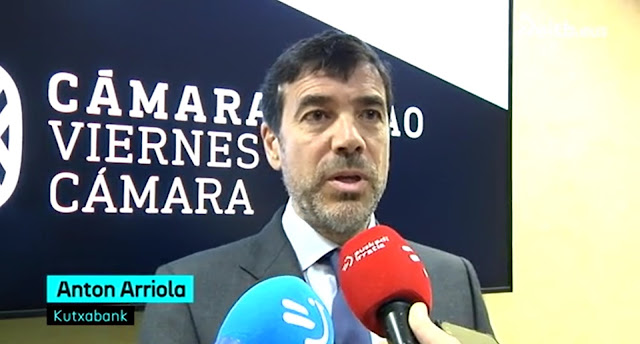The new education law will be neoliberal
It seems that in a few months' time we will have a new Education Act. Until then, a number of measures are already being taken and the draft of this law has been published. And what we're seeing is worrying. In this article we will address one aspect: deregulation that will be strengthened in some areas. In fact, each centre will be able to guarantee fundamental rights or not.
As a result of the next new educational law, this way of understanding the educational system will be strengthened. A graphic example: the guarantee of the Basque right to learning will be left to the linguistic project of each center. So far, de facto, despite excessive flexibility, administrative intervention will be further reduced in the future.
From the acceptance of the students we can say the same: all centers must accept a minimum of vulnerable students. This forced "distribution" is the main indicator of system failure, the inability to overcome an exclusive system. Concerted centres, which will continue to be the case, will be able to continue to select students according to their socio-economic origins and beliefs. This is the origin of school segregation and, as long as effective measures are not taken to prevent the selection of pupils, we will continue to suffer from one of the basic educational systems throughout Europe. Instead of promoting an inclusive system of egalitarian schools, a system of admission of students specifically adapted to segregation centres will be created to accept at least a number of vulnerable students in their educational community, while allowing social homogeneity to be the focus of the educational project. But, as with the Basque Country, in terms of inclusion, the administration should be, with or without agreements, guarantor of rights. It is not possible to leave in the hands of the "proper character" or "ideary" of each center the acceptance of the students, at least while they are equipped with public money.
As with the Basque Country, in terms of inclusion, the administration should be, with or without agreements, guarantor of rights
The decline in the number of births could be a unique opportunity to overcome the exclusionary and liberal educational model and limit the planning of the centres run by the administration, based on the guarantee of the fundamental rights of all pupils and reducing the number of agreed segregating schools. On the contrary, the decisions taken in recent months have shown that the right to learn the Basque language of students and the inclusion of all students is not a priority, as great facilities have been given to perpetuate without distinction all the politico-concerted centres. In fact, to start building the "Basque Education Service", one more year the public funding received by private concerted centres (17% in the last five years, according to Steillas data), reduced the number of students to be able to access concerts and arranged classrooms of two years. Let us remember that most of the private concerted centres are schools for Christians (approximately 35% of the system) and concerted ikastolas account for 15% of the system. Most privately held centres focus on pseudo-plurilingualism, social homogeneity of the community and the Catholic religion. It is clear that the law to be established will be a sound basis for the survival of these centres.
Indeed, the main privatisation key to the political agreement lies in the understanding of the system: we will have a system of autonomous and independent bodies, the "proper character" of the centres will be intangible, "decentralised", that allocates resources according to the quality of the product (not depending on the needs) and that tries to reconcile the public and private character. They seek to limit government intervention and public schools should swim in a competitive ecosystem of flexible rules of private centres and not the other way around. The logic of the business world will be strengthened (as mandated by the OECD and the European Commission). Consequently, social Darwinism in education will be enhanced. That is why, in order to keep the private exclusive centres that are supported by lobbies, in the empty apparitions full of solemnity, politicians have presented to the public what pre-politics is as a revolutionary innovation: the fulfilment of requirements to receive public money (as if they were not already written). And the centres that meet these requirements will be part of the CAPV's "Basque public educational service".
It is essential to structure a more unified and egalitarian system, expand the perimeter of the public school and make it hegemonic before "decentralization"
In large countries with widespread unified public education and low school segregation rates, decentralization policies may be appropriate to foster community proximity and strengthening. But when the administration of a small country of two million inhabitants makes half of the private educational offer, the decentralization and strengthening of autonomy that allows the deregulation of the system make it a Russian roulette. Hence the need to articulate a more unified and egalitarian system, expand the perimeter of the public school and make it hegemonic before proceeding to "decentralization". The opposite is to privatise and deregulate the system and move us away from a solid, common country project.
In short, they have linked agreements with those who have a lot to lose and little to gain, rather than those who have a lot to gain and little to lose. It has been a risk-free political agreement that will help to build a law that maintains the privileges of those of forever. That is why it will be a neoliberal law, because it will again recognise more rights to private owners, customers and their children than to the rest of the citizens.
Aitor Idigoras, Professor
Bidali zure iritzi artikuluak iritzia@argia.eus helbide elektronikora
ARGIAk ez du zertan bat etorri artikuluen edukiarekin. Idatzien gehienezko luzera 4.500 karakterekoa da (espazioak barne). Idazkera aldetik gutxieneko zuzentasun bat beharrezkoa da: batetik, ARGIAk ezin du hartu zuzenketa sakona egiteko lanik; bestetik, egitekotan edukia nahi gabe aldatzeko arriskua dago. ARGIAk azaleko zuzenketak edo moldaketak egingo dizkie artikuluei, behar izanez gero.
A few weeks ago, on Diputación Street, in the centre of Vitoria-Gasteiz, two men threw a homeless person off the small landing outside the place where he slept. In addition to being thrown away, a metal railing was immediately placed in front of the lonja. Although the place... [+]
From linguistics or glotophobia and, of course, hatred against Basque, we have often seen our Basque become the dandruff of all sticks. Last of all, the president of Kutxabank, Anton Arriola, has been shaking our language and giving us galantas.The President of Kutxabank,
... [+]
Do not look for this connection from Ezkio or Altsasu, let alone crossing the Ebro River through Castejón. The connection, or rather the connections, between the Basque Y and the AVE of Navarre is already a reality. It is these links in the plural that should concern us and... [+]
Don't make a fuss, don't confront, don't victimize... and obey. As oppressed subjects, in this case as Basques, we talk, how many times have we had to listen to them? Ironically, two years ago, at the Euskalale Independentiston Meeting, Esne Arzallus said: "We have arrived here,... [+]
Aurten "Israel Premier Tech" txirrindularitza talde israeldarra ez da Lizarraldeko Miguel Indurain Sari Nagusia lasterketara etorriko. Berri ona da hori Palestinaren askapenaren alde gaudenontzat eta munstro sionistarekin harreman oro etetea nahi dugunontzat, izan... [+]
Intsumituek denbora luzez egindako borroka gogorra eta mingarria izan zen, baina irabazi zuten, eta garaipen hura behin betikoa izango zela uste genuen, atzera bueltarik gabea. Baina badirudi, politikari batzuen ahotik aterata, eskalada militaristari gorazarre egin eta berriz... [+]
Punto Bobo liburuaren irakurketan murgilduta, Itxaso Martin Zapirain egilearen Eromena, Azpimemoria eta Isiltasunak Idazten ikerketa lanean sentitu nuen egiazkotasun eta maila etikoarekin egin dut berriz ere topo. Eta hortaz, hara bueltatu. “Oihu izateko jaio zen isiltasun... [+]
Dirudienez, Euskal Herrian migrazioa arazo bilakatu da azken bi hamarkadetan. Atzerritarrez josi omen dira gure lurrak. Gure kultura arriskuan omen dago fenomeno “berri” horren ondorio. Lapurretak, bortxaketak, liskarrak… Bizikidetza arazo horiek guztiak... [+]
Azken hamarkadetan euskararen biziberritzeak duen erronka handienetakoa, euskararen ezagutzaren unibertsalizazioarekin batera, erabilerarena da. Askotan, gazteen euskararen erabileran jarri ohi dugu fokua, baita euskararen erabilerak izan duen eta izan dezakeen bilakaeraren... [+]
Goizean jaiki orduko hasten dira desegokitasunak. Beharbada lotarako erabili duzun lastaira ere ez zen egokiena. Baina, ezin ba idatzi desegoki sentiarazten nauten guztiez. Horregatik, udaberriko ekinozioa –egunaren eta gauaren arteko oreka– dela eta, oraindik ere,... [+]
Ez da gauza berria politikari profesionalak gizarteko arazoak estaltzeko ahaleginetan ibiltzea. Azkenaldian Denis Itxaso -EAEko Etxebizitza sailburua- entzun dugu etxegabetzeei garrantzia kenduz eta aditzera emanez gurean bazterreko fenomenoa direla; eta Begoña Alfaro... [+]
Antropozentrismoaren aldaera traketsena eurozentrismoa izan zen. Europako mendebaldea, geografikoki, Kontinente Euroasiarraren penintsula txiki bat besterik ez da, baina lau mende luzez gertaera demografiko, teknologiko eta ideologiko batzuk zirela medio, bazter horretako... [+]
Badakizuenok badakizue, beste gauza asko bezala, euskararen aldeko borrokan ere politikoek, eragile batzuek eta hedabideek beraien antzezlana saldu nahi digutela, benetakoa balitz bezala.
Lehen urtean pozik jaso nuen, "Euskaraldi" hau. Zer edo zer zen, ezer ez zegoela... [+]
Euskarak, mendez mende, zapalkuntza sistematikoa jasan du, eta oraindik ere borrokan dabil egunerokoan bere leku duina aldarrikatzeko. Hizkuntza baten desagerpena ez da inoiz berez gertatzen; planifikazio politiko eta sozialak eragiten du zuzenean. Euskaldunoi ukatu egin izan... [+]
Horra Libération egunkariak berriki argitaratu duen idazkia:
“Bayonne” bukatu da, Libérationek “Baiona” idatziko du
Hiri baten izenaren erabilpena ohiturazkoa delarik, egunkari batean izen horren erabilpena aldatzea zaila da. Alta, irakurleen... [+]










